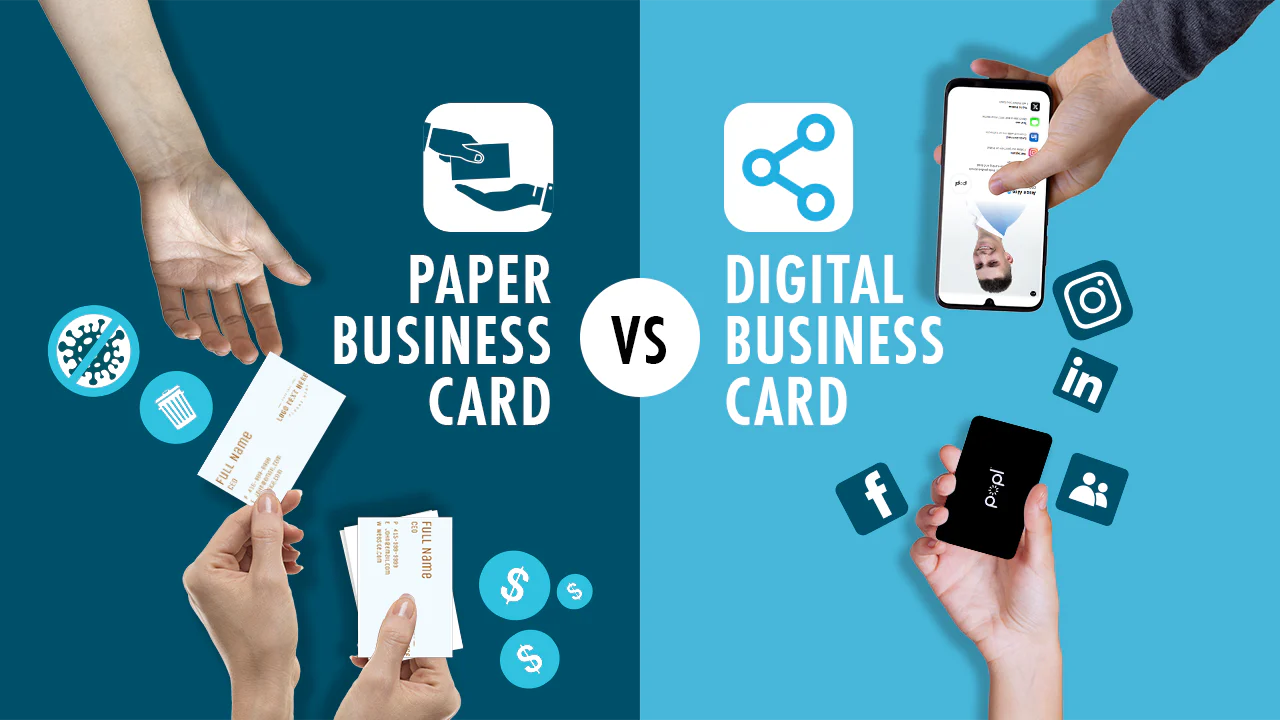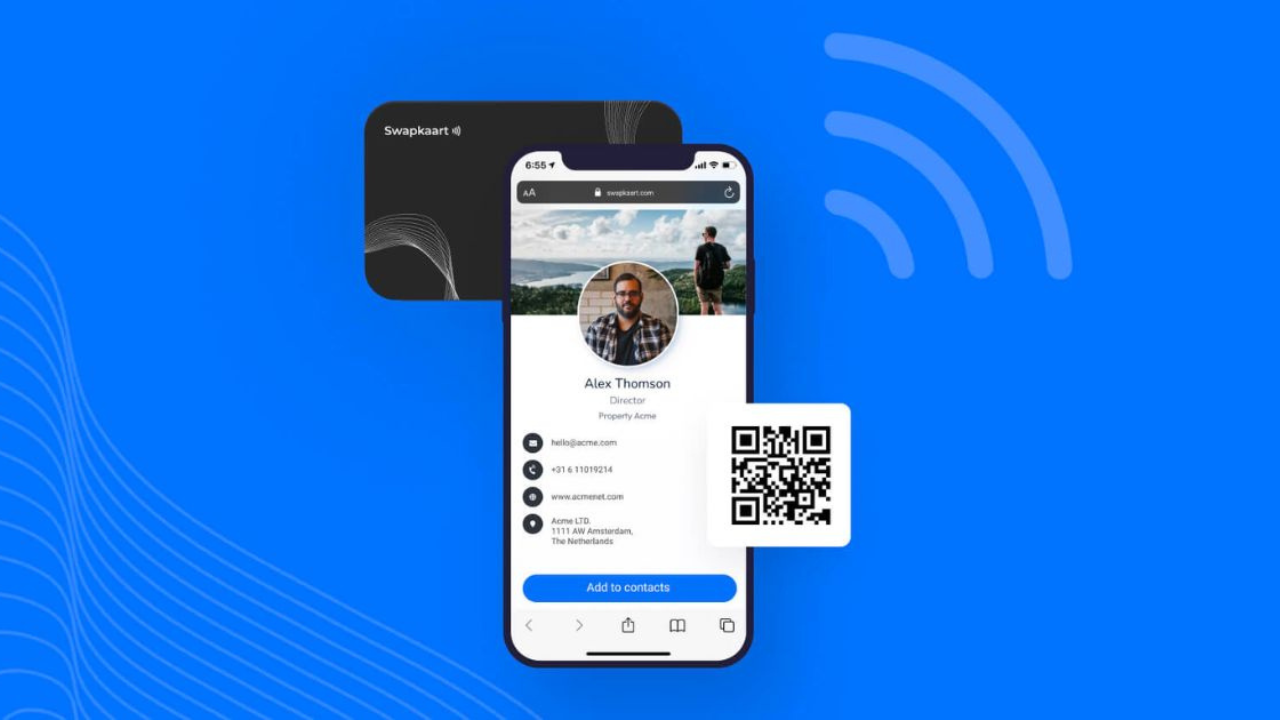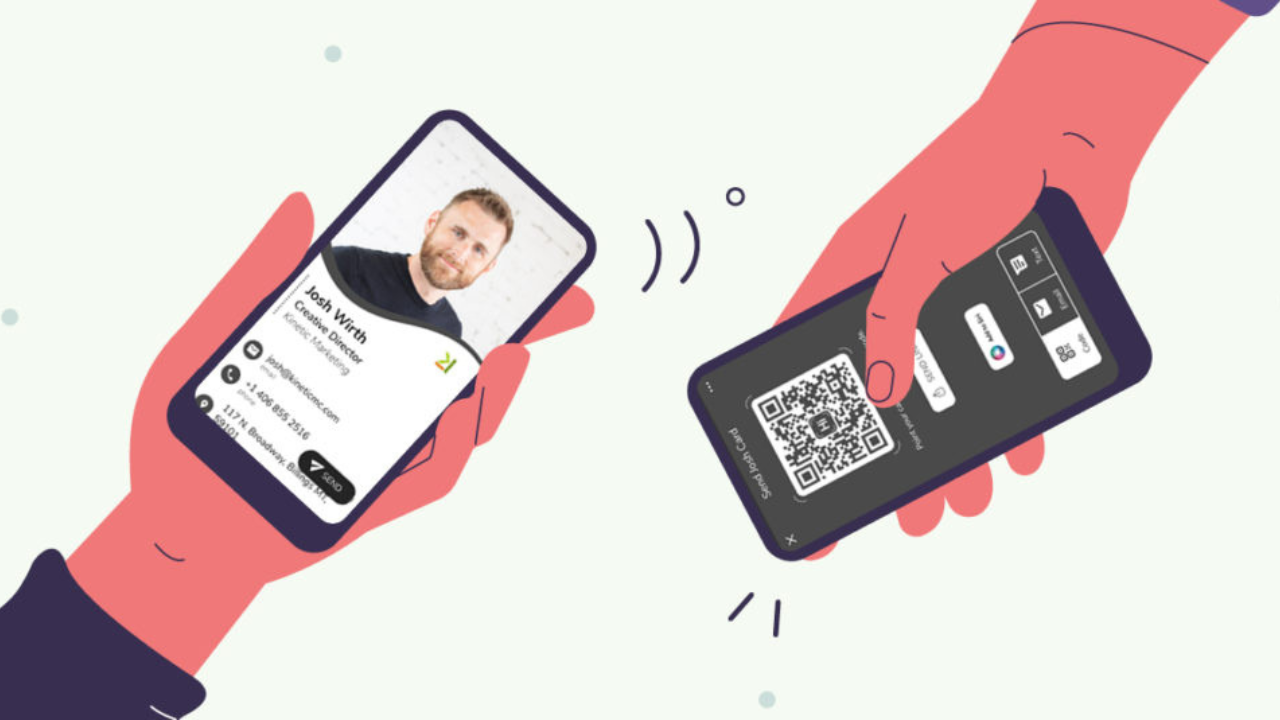

Digital vs. Traditional Business Cards: Which Is Right for You?

1. Convenience and Accessibility
Digital Business Cards:
Digital business cards can be created, shared, and updated instantly. With just a few taps on your smartphone, you can share your contact information via email, text, or social media. This accessibility makes it easy for potential clients to save your details without the need for physical storage.
Traditional Business Cards:
On the other hand, traditional business cards require physical handling. You need to carry them with you, and there's always the possibility of running out. Additionally, if your information changes, you must print new cards, which can be time-consuming and costly.
2. Cost-Effectiveness
Digital Business Cards:
Creating a digital business card often involves minimal upfront costs. Many platforms offer free or low-cost options to design and share your card. Plus, there are no printing or shipping expenses, making it a budget-friendly choice.
Traditional Business Cards:
While traditional cards may have a lower initial cost per card, the expenses can add up quickly. Consider the costs of design, printing, and potential reprints if your information changes. For businesses on a tight budget, these costs can be prohibitive.
3. Environmental Impact
Digital Business Cards:
One of the significant advantages of digital cards is their eco-friendliness. By eliminating paper usage, you contribute to sustainability efforts and reduce waste, aligning with the growing preference for environmentally responsible practices.
Traditional Business Cards:
Traditional cards, while effective, contribute to paper waste. Even with recycling efforts, the environmental impact of mass printing can be considerable, especially for businesses that frequently update their information.
4. Customization and Interaction
Digital Business Cards:
Digital cards offer an array of customization options. You can include links to your website, social media profiles, and even videos. Some digital business cards have interactive features, such as QR codes, allowing recipients to save your contact details directly to their phones.
Traditional Business Cards:
While traditional cards can be beautifully designed, they lack the interactive capabilities of digital cards. You can include a logo, tagline, and essential information, but the scope for engagement is limited compared to digital options.
5. Networking Opportunities
Digital Business Cards:
Digital cards enhance networking possibilities. You can share your card with a broader audience through online platforms and social media, increasing your visibility and reach. Additionally, the ease of sharing means you can connect with more people in less time.
Traditional Business Cards:
Traditional cards are still valuable in face-to-face networking situations. They can create a lasting impression when handed directly to someone, and some people still prefer the tactile experience of a physical card. However, the reach is generally limited to in-person interactions.
Conclusion
Both digital and traditional business cards have their unique advantages and disadvantages. Ultimately, the choice comes down to your personal preference, business needs, and networking style. For those looking for convenience, cost-effectiveness, and eco-friendliness, digital business cards may be the way to go. However, if you value the personal touch of a physical card and often engage in face-to-face networking, traditional cards still hold their ground.


